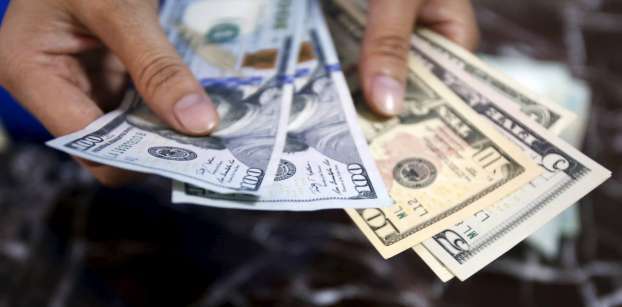CBE keeps pound stable at 8.78 to the dollar

The Central Bank of Egypt devalues the pound against the US dollar on Mar. 14, 2016
CAIRO, Jul 12 (Aswat Masriya) - The Central Bank of Egypt (CBE) decided to keep the price of the Egyptian pound stable at 8.78 to the dollar on Tuesday, the state-owned MENA reported.
Experts predicted that the value of the Egyptian pound would imminently depreciate, after the governor of the CBE said last week that the policy of stabilising the pound was a "grave mistake."
The comment was taken to foreshadow a more flexible exchange rate policy in the coming period.
Amer also told local papers that the policy of fixing the value of the pound doesn’t truly reflect how it stands against the dollar, "and it encourages citizens to buy imported goods," which he described as "a grave mistake."
As for the high demand for imported goods, Amer said "it is inappropriate to deal with that using fixed high exchange rates for the pound and to waste [the country’s] foreign reserves for the sake of maintaining the price of the currency."
The speculations surrounding the depreciation of the pound led to a rise in stock prices in the Egyptian Stock Exchange, as well as the rise of the dollar price on the black market.
The central bank cut the pound by about 14% in March in an attempt to eliminate the black market, which flourished and grew amid the severe foreign currency shortage which has further damaged trade and investment.
The former CBE governor, Hesham Ramez, had begun gradually depreciating the pound against the dollar since 2012. After Amer became the head of the CBE last March, he depreciated the pound from 7.73 to 8.85 and then again raised it to 8.78 to the dollar.
Although heavily reliant on imports for food and energy, Egypt is facing a dollar shortage at a time when sources of hard currency inflows like tourism and investment are shrinking.
Years of political turmoil led to a drop by more than a half of Egypt's foreign reserves in the years following the popular uprising in January 2011, which ended the rule of President Hosni Mubarak. The instability that ensued has driven tourists and investors away.
The Egyptian state is facing pressures to depreciate the pound, with analysts saying Egypt can no longer support the current price of the pound.
Egypt's foreign reserves inched up to $17.546 billion in June, however, they remain less than half of the foreign reserves Egypt had before Mubarak's removal when they were almost $36 billion.
Egypt has been scrambling to collect money lately, signing loan agreements with the World Bank and the African Development Bank (AfDB) in December.









facebook comments